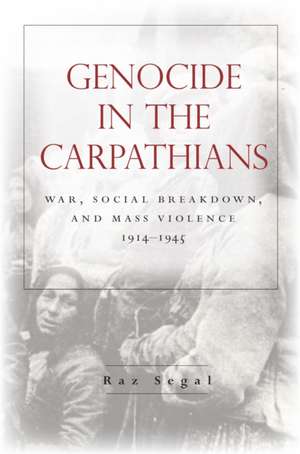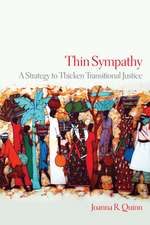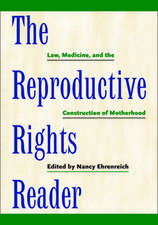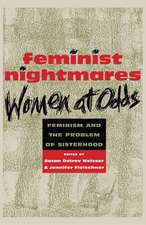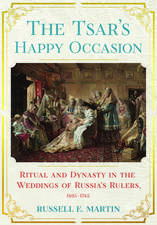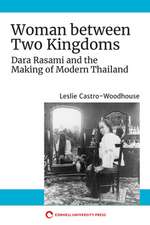Genocide in the Carpathians: War, Social Breakdown, and Mass Violence, 1914-1945: Stanford Studies on Central and Eastern Europe
Autor Raz Segalen Limba Engleză Paperback – 2 mar 2020
In considering the events that preceded the German invasion of Hungary in March 1944, this book reorients our view of the Holocaust not simply as a German drive for continent-wide genocide, but as a truly international campaign of mass murder, related to violence against non-Jews unleashed by projects of state and nation building. Focusing on both state and society, Raz Segal shows how Hungary's genocidal attack on Subcarpathian Rus' obliterated not only tens of thousands of lives but also a diverse society and way of life that today, from the vantage point of our world of nation-states, we find difficult to imagine.
Preț: 224.72 lei
Nou
42.100€ • 45.02$ • 35.58£
Carte tipărită la comandă
Livrare economică 07-21 aprilie
Specificații
ISBN-10: 1503613607
Pagini: 232
Dimensiuni: 152 x 229 x 16 mm
Greutate: 0.34 kg
Editura: MK – Stanford University Press
Seria Stanford Studies on Central and Eastern Europe
Descriere
Genocide in the Carpathians presents the history of Subcarpathian Rus', a multiethnic and multireligious borderland in the heart of Europe. This society of Carpatho-Ruthenians, Jews, Magyars, and Roma disintegrated under pressure of state building in interwar Czechoslovakia and, during World War II, from the onslaught of the Hungarian occupation. Charges of "foreignness" and disloyalty to the Hungarian state linked antisemitism to xenophobia and national security anxieties.
Genocide unfolded as a Hungarian policy, and Hungarian authorities committed mass robbery, deportations, and killings against all non-Magyar groups in their efforts to recast the region as part of an ethnonational "Greater Hungary."In considering the events that preceded the German invasion of Hungary in March 1944, this book reorients our view of the Holocaust not simply as a German drive for continent-wide genocide, but as a truly international campaign of mass murder, related to violence against non-Jews unleashed by projects of state and nation building. Focusing on both state and society, Raz Segal shows how Hungary's genocidal attack on Subcarpathian Rus' obliterated not only tens of thousands of lives but also a diverse society and way of life that today, from the vantage point of our world of nation-states, we find difficult to imagine.
